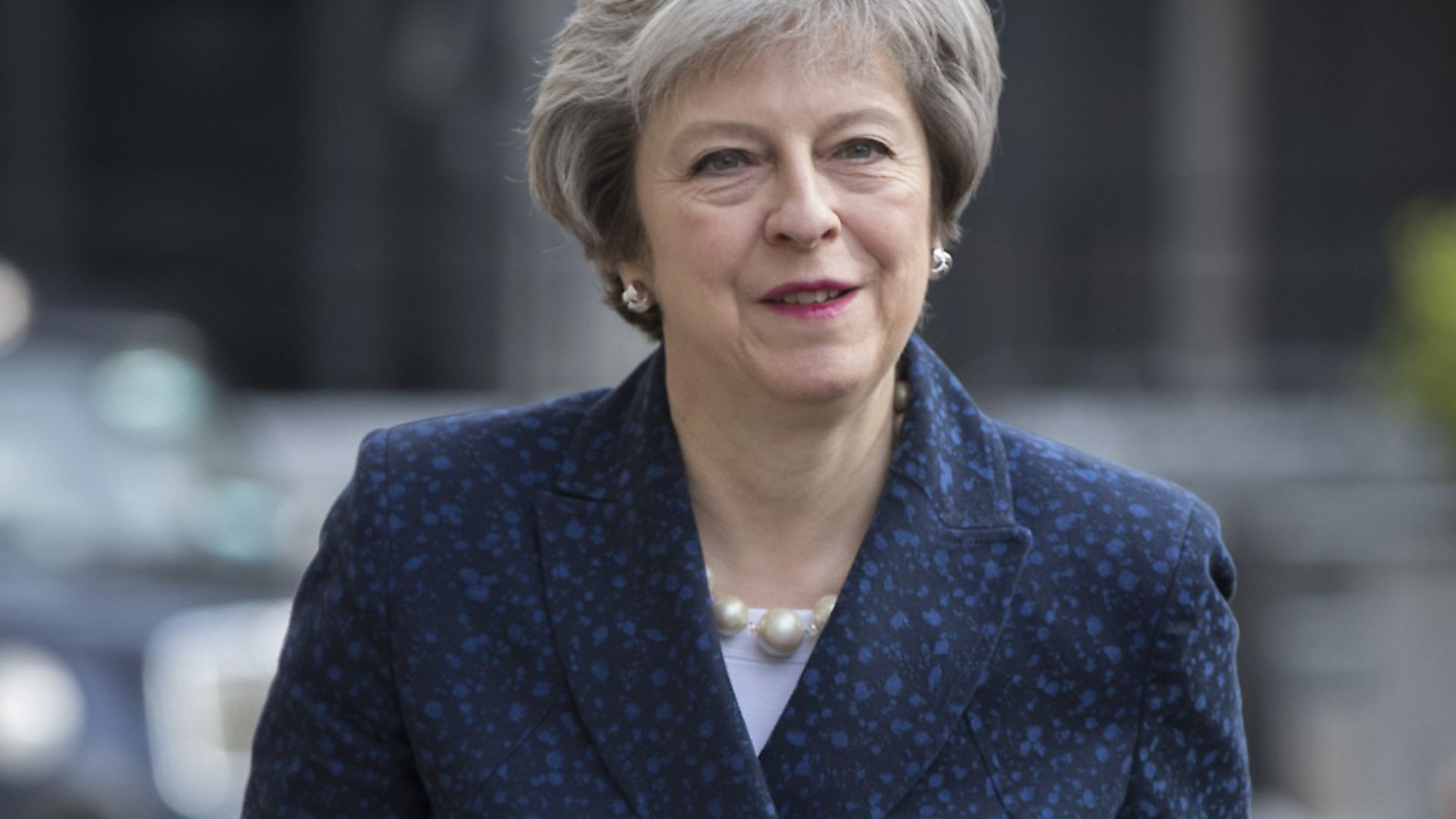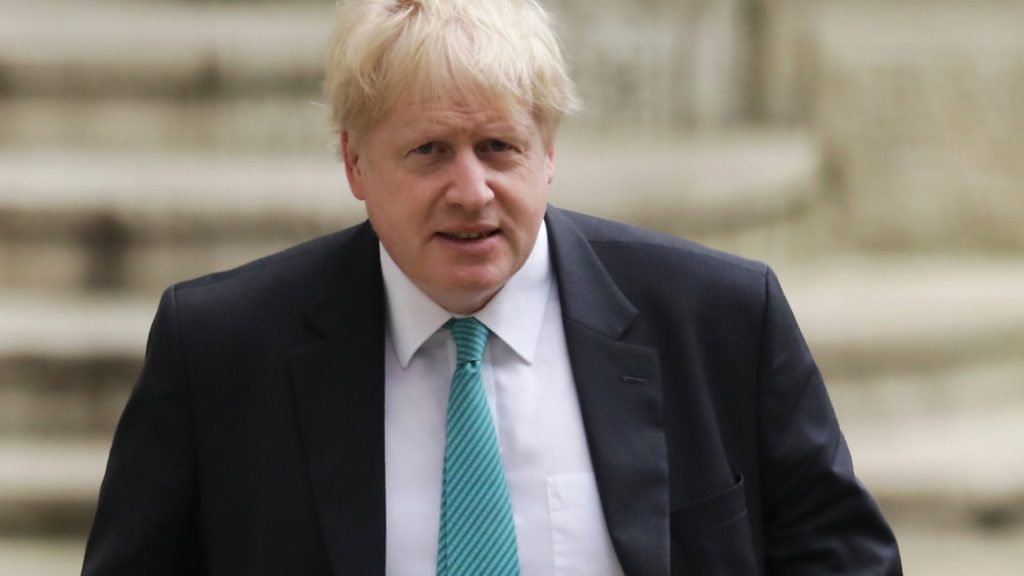
The idea Brexit is failing because it is being betrayed must be strongly resisted, says STEVE RICHARDS. Brexit is failing because it cannot be delivered.

Political debate, the essence of any democracy, demands a clash of views. We are familiar with the outline of most political battles. There is left versus right, open versus closed, liberal versus authoritarian, high taxes versus low taxes.
All of them have policy implications and values connected with the policies. Amid the current frenzy of British politics a new juxtaposition surfaces, dangerously vague and without leading to any clarity.
‘Anti-elite’ versus ‘the elite’ is the great confrontation of our times. Frame an argument from the ‘anti-elite’ perspective and the case will almost certainly prevail. If an advocate is perceived as being from ‘the elite’ he or she is doomed to fail.
The battle was the backdrop to the Brexit referendum. On the whole the so-called elite were perceived to have backed Remain. Those who were seen as anti-elite put the case for Leave and won. Voters ignored the advice of the then prime minister, all former prime ministers, the leader of the opposition and anyone else seen as being part of the complacent establishment. They turned away because they felt ignored by those they elected. They wanted to give them a kicking.
That is in the past. The juxtaposition of an elite and anti-elite explains Brexit, the rise of Donald Trump and the ascendancy of self-proclaimed outsiders across the Western world. In relation to Brexit the theme persists. According to quite a lot of MPs, constituents ask them a single question: ‘Why don’t you just get on with it?’
The obvious implication of the question is that the elected elite has not been getting on with it. Instead they must have loftily turned away from the electorate and pursued other projects.
The impatient question to MPs is part of the Brexit betrayal narrative that is taking shape in many forms. In his resignation speech Boris Johnson proclaimed that it was not too late for a ‘proper Brexit’, suggesting that others were resolved to address the impossible dilemmas improperly. The hardliners that have yearned for a vaguely defined separation from the EU discover the process is a political nightmare with calamitous consequences and blame the wrong type of Brexit, one implemented by a pro-European ‘elite’. As a matter of urgency these assumptions need challenging until they become impossibly absurd for voters to hold them.
The most dangerous is the demand that the politicians ‘get on with it’. What do those making the demand think is going on and has been going on for nearly two energy-sapping years? Since the referendum one prime minister has resigned and his successor has spent virtually every waking hour seeking to deliver the ‘people’s verdict’ even though she knows the outcome will damage the UK. Delivering Brexit overwhelms the whole of government and most parliamentary business. There is no political focus for any other topic.
There is a terrible irony in what has happened since the referendum. The political reaction to the result proves that elected politicians and senior civil servants respond to ‘the people’ to the point of calamitous destruction. The reaction of the ‘elected and non-elected elite’ disproves a driving force of the referendum result, that the Westminster elite are out of touch, indifferent to voters and cocooned in a comfortable bubble.
The opposite is the case. They are so in touch they are willing to take the UK to the cliff’s edge in order to please the people, or some of the people, to be more precise. They ache to deliver the referendum. Yet such is the wilful determination of some voters to believe that they are ignored they have the chutzpah to demand that the loathed elite ‘get on with it’.
The referendum raised many legitimate issues. Some voters do feel ‘left behind’. Some have little or no control over much of their lives as work becomes more fragmented. The useless trains and deregulated buses in the UK almost literally leave some areas left behind, because of inadequate public transport.
The global economy presents huge challenges as well as opportunities. Austerity economics have made voters poorer. But none of this means that an elected elite wilfully ignored voters.
Elected politicians make terrible misjudgments for lots of reasons. Policies can be based on ideological conviction, parliamentary constraints and, in some cases, a desire to please voters only to alienate them. These were some of the factors behind the Cameron/Osborne austerity measures, the war in Iraq, the lax regulation prior to the 2008 crash, all factors in the breakdown of trust between voters and the elected.
The explanation does not lie in an indifference to parts of the electorate. Yet the demand that the politicians get on with delivering Brexit suggests a view that it would all be so easy if only the elected elite paid more attention.
The vacuity of the second betrayal narrative, as espoused by Johnson and hardline Brexiteers, is conveniently obscured by angry assertiveness.
The combination of emptiness and apparent noisy clarity is typified by a recent column from Trevor Kavanagh in the Sun newspaper under the headline ‘We’re on brink of political anarchy – so we need a clean Brexit to stop EU vultures’.
Unsurprisingly the article below does not explain what form a ‘clean Brexit’ would take. Johnson did not offer an explanation in his resignation speech. But the narrative is a dangerous one. Brexit is going badly wrong so the Brexiteers are, in effect, blaming the Remainers such as May for failing to deliver a ‘clean Brexit’.
They demand to know why is she not being tougher on those EU ‘vultures’ even though she continues to threaten a ‘no deal’ and proposes a Brexit that blows apart the principles of the single market.
The proposition that the EU would concede to all that the UK seeks, if it faced a ‘tougher’ prime minister is a fantasy, but it is one that will gain traction as Brexit proves impossible to deliver.
A People’s Vote on whether to stay in the EU at the end of this nightmarish process risks becoming part of the ‘betrayal’ narrative. Here is another convenient diversion for the hardliners. Instead of ‘getting on with it’ those cocooned elites are finding a way of changing the ‘people’s verdict’ in 2016. In addition, only because the weak-kneed former Remainers like May are making a hash of Brexit is the whole process failing to lead the UK to the Promised Land. If the betrayal narrative takes greater hold there will be no chance of a second referendum or, if one is held, it will be lost.
That is why the nonsensical but deeply held assumptions must be challenged every minute of every day. Are they not trying to ‘get on with it’?
May broke off her walking holiday to meet Emmanuel Macron in France. Ministers travel around Europe in the stifling heat of August putting their pathetic case. Government departments recruit more and more officials to help them navigate the thousands of Brexit policy implications. Another Brexit irony is that a government elected first in 2010 on a slogan about ushering in ‘the post-bureaucratic age’ will appoint more bureaucrats than any other in modern history.
MPs vote on mainly Brexit-related legislation. Embryonic trade deals are tentatively explored as the UK seeks experts in such negotiations. On it goes. There is little time for transport, NHS, schools and housing. Brexit sucks up all political attention. May’s White Paper was the most detailed attempt to get on with, squaring circles that cannot be squared. Here is the reality. If Brexit is failing it is because Brexit cannot work.
The argument in favour of a People’s Vote is growing because the UK government has been getting on with it and faces calamitous consequences as a result of its boundless Brexit energy.
As for the other part of the betrayal narrative, imagine if Johnson were to become prime minister this autumn. He would dump May’s convoluted White Paper to great cheers. And then what? There would still be a hung parliament and an EU justifiably seeking to protect the foundations on which it is based as one country leaves. There would be cries of betrayal once more.
The clock ticks. Voters need to understand by this autumn that the problem with Theresa May is that she is trying too hard to please and not that she is indifferent to what the voters wanted.
There is no alternative ‘clean Brexit’. The only alternative to the cliff’s edge is to remain in the EU. That is the real substantial juxtaposition that matters. Elite versus anti-elite takes us nowhere. May’s deal versus no deal versus Remain is potentially a real debate. It can only be substantial and significant when voters accept that the elected elite have tried to get on and deliver Brexit, only to find that it is beyond delivery.
• Steve Richards presents Rock N Roll Politics 2018 until August 25 at the Edinburgh Festival










